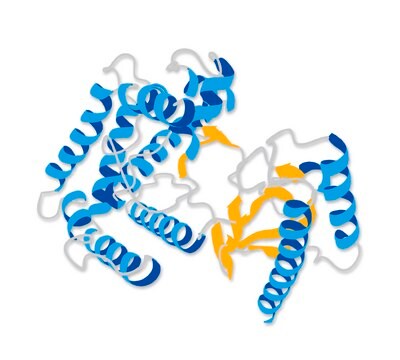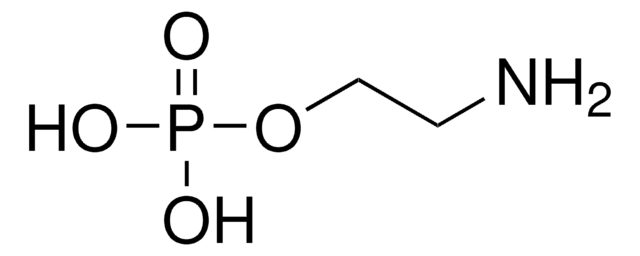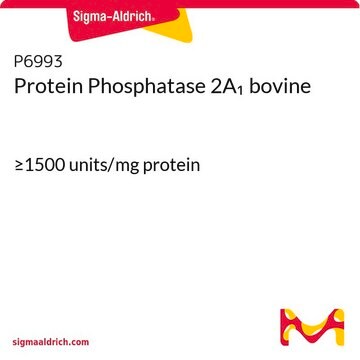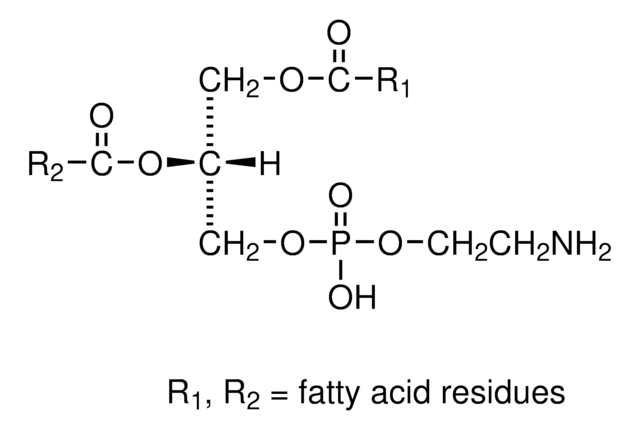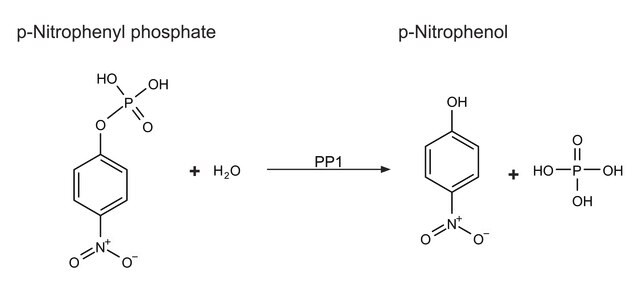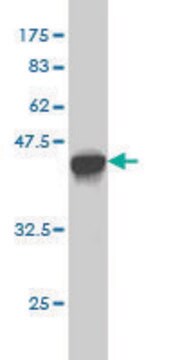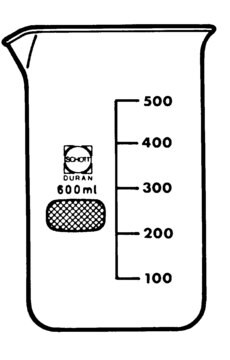P9614
Lambda protein phosphatase
liquid, Bacteriophage Lambda, recombinant, expressed in E. coli
Synonym(s):
Lambda-PPase
Sign Into View Organizational & Contract Pricing
All Photos(1)
About This Item
Recommended Products
recombinant
expressed in E. coli
Quality Level
form
liquid
mol wt
25 kDa
concentration
≥400000 units/mL
shipped in
dry ice
storage temp.
−70°C
General description
Lambda protein phosphatase is a recombinant protein expressed in Escherichia coli. It requires Mn2+ or Ni2+ as activators.
Biochem/physiol Actions
Can be used to release phosphate groups from serine, threonine or tyrosine residues in proteins. Also active on phosphorylated histidine residues.
Lambda protein phosphatase has been used to dephosphorylate HeLa cell extracts.
Unit Definition
One unit will hydrolyze 1 nanomole of p-nitrophenyl phosphate per min at pH 7.5 at 30 deg C.
Storage Class Code
10 - Combustible liquids
WGK
WGK 1
Flash Point(F)
Not applicable
Flash Point(C)
Not applicable
Choose from one of the most recent versions:
Already Own This Product?
Find documentation for the products that you have recently purchased in the Document Library.
Customers Also Viewed
Expression, purification, crystallization, and biochemical characterization of a recombinant protein phosphatase.
Zhuo S
The Journal of Biological Chemistry, 268(24), 17754-17761 (1993)
Proliferating cell nuclear antigen-dependent rapid recruitment of Cdt1 and CRL4Cdt2 at DNA-damaged sites after UV irradiation in HeLa cells.
Ishii T
The Journal of Biological Chemistry, 285(53), 41993-42000 (2010)
P T Cohen et al.
The Biochemical journal, 260(3), 931-934 (1989-06-15)
Infection of Escherichia coli with phage lambda gt10 resulted in the appearance of a protein phosphatase with activity towards 32P-labelled casein. Activity reached a maximum near the point of cell lysis and declined thereafter. The phosphatase was stimulated 30-fold by
Kyoko Chiba et al.
Molecular biology of the cell, 28(26), 3857-3869 (2017-11-03)
In neurons, amyloid β-protein precursor (APP) is transported by binding to kinesin-1, mediated by JNK-interacting protein 1b (JIP1b), which generates the enhanced fast velocity (EFV) and efficient high frequency (EHF) of APP anterograde transport. Previously, we showed that EFV requires
Delphine Pflieger et al.
Molecular & cellular proteomics : MCP, 7(2), 326-346 (2007-10-25)
Protein complexes have largely been studied by immunoaffinity purification and (mass spectrometric) analysis. Although this approach has been widely and successfully used it is limited because it has difficulties reliably discriminating true from false protein complex components, identifying post-translational modifications
Our team of scientists has experience in all areas of research including Life Science, Material Science, Chemical Synthesis, Chromatography, Analytical and many others.
Contact Technical Service
